State of the Logos Network: October 2025
Your roundup of recent developments from the Logos community and ecosystem

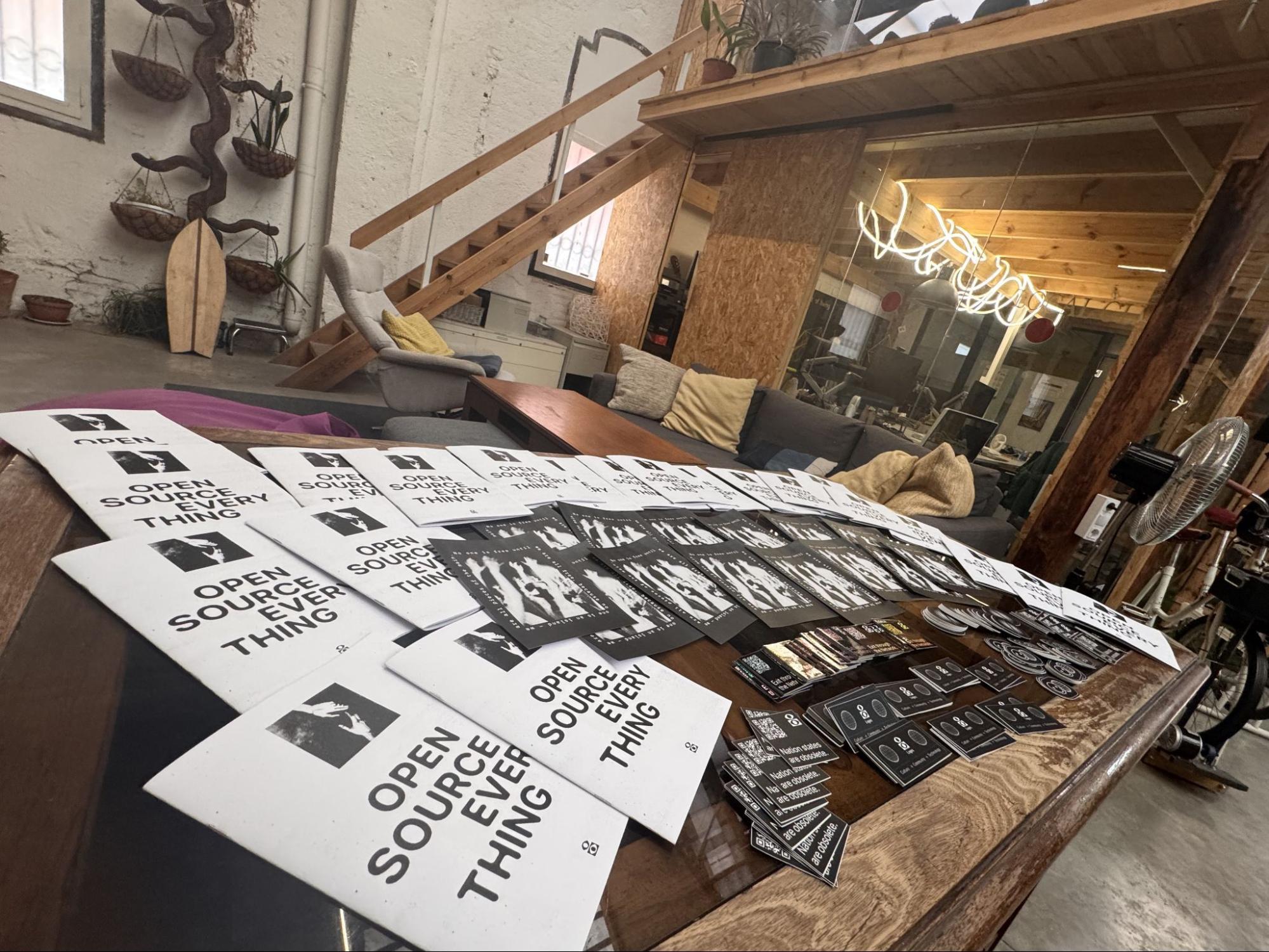
Cultivating community
Logos is a movement dedicated to redefining the way people connect and collaborate. Bringing this vision to reality depends on the drive and imagination of a passionate community.
If our principles resonate with you, we invite you to share your skills and insights. Everyone who builds with us receives recognition and support.
The Logos Contribute portal makes it easy to participate, whether by writing code to advance the Logos technology stack; building on it; or supporting the movement with creative, non-technical ideas. Submit your proposed contribution through the portal, and we’ll help you get started.
Campaigns
Privacy in Practice
Last month, we sponsored two tracks as part of RealFi Hack, a virtual hackathon encouraging the building of tools that people actually need today. The Logos-sponsored Resilient Activist Technology and Logos x Tor Privacy infrastructure tracks produced some very promising submissions, resulting in two winners per category. Each winning team received $2,000 in bounties and a Keycard for each member.

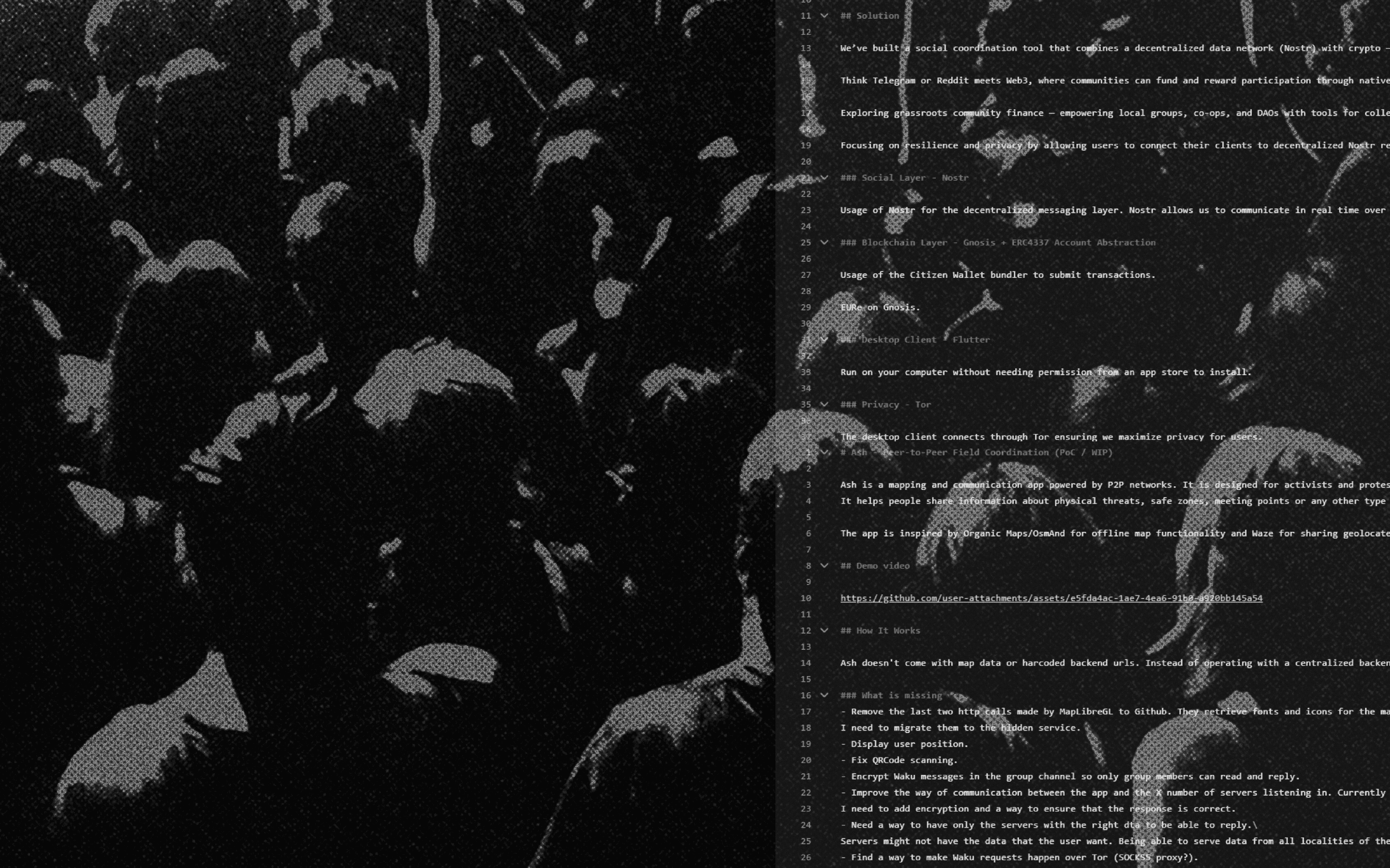
Logos tracks' RealFi Hack winners:
- Ash: A P2P coordination tool for activists built on Waku. Learn more.
- Comunifi: Censorship-resistant coordination and finance tool built with Nostr on the Gnosis network. Learn more.
- Shielded Micropay (aka Hidden Payment Channels): Privacy-preserving payment protocol for low-cost pay-per-request transactions over private infrastructure. Learn more.
- Tohaku: Privacy-focused Ethereum wallet built on Ambire Wallet that routes activity through Tor or the Nym mixnet. Learn more.
Our latest article on Logos Press Engine provides in-depth details about each of the winning entries. Read it now.
We’ll also be giving a technical overview of winning projects on X each week. Watch the Ash technical overview now and follow Logos on X to catch the next one.
Next up for Privacy in Practice, we head to Buenos Aires to participate in various initiatives alongside Funding the Commons ahead of this year’s Devconnect:
- Funding the Commons Builder Residency (24 Oct. to 14 Nov.)
- Logos Circle: Buenos Aires (16 Nov. and 19 Nov.)
- Funding the Commons Conference (19 Nov.)
- P2P Hacker Lounge (22 Nov.)
If you’ll be in Buenos Aires in November, learn more about each initiative and how to get involved here.
Learning
Farewell to Westphalia
In September, Logos Press Engine released its debut book, Farewell to Westphalia, and our promotional efforts continued into October. Authored by Logos cofounder Jarrad Hope and Peter Ludlow (author of Crypto Anarchy, Cyberstates, and Pirate Utopias), it examines how blockchain technology can be applied across different layers of collaboration. Its central thesis is that reinventing our systems of governance can reduce corruption and foster continuous experimentation and optimisation, leading to greater human flourishing.
The book is available now in both physical and ereader editions via major online bookstores and as a free digital download on the Logos website. Read it now.
If you’ve already read Farewell to Westphalia and found it insightful, we’d greatly appreciate it if you could leave a short review on Goodreads or Amazon to boost its visibility. The book represents a core part of the Logos vision, and sharing it widely helps invite others to engage with and support the movement.


Logos Press Engine
Logos Press Engine published an overview of the winning RealFi Hack projects in October. Read it now.
We’re also working with community member Nova on a trilogy of articles that uses the Sahel coup belt as a live case study for the transition from nation-state to parallel, alternative governance. The series aims to bridge Farewell to Westphalia's theoretical framework with The Network State's implementation blueprint, illustrating one possible strategy to deploy blockchain governance in environments where legacy institutions have failed.
Want to contribute to the conversation on the future of human cooperation and governance? Submit your article proposal to Logos Press Engine via the Logos Contribute portal.
X Spaces
Logos’ October spaces focused heavily on privacy-enhancing tech, coinciding with the ongoing Privacy in Practice campaign. We started the month with a special guest from the Internet Archive and discussed the organisation’s efforts to save the modern archive with new decentralised tooling.
The following week, Harry Halpin from Nym joined us to discuss cypherpunk philosophy, crypto anarchism, and Nym’s VPN technology. The Open Dialogue Foundation also came on to talk about how to protect privacy activists and help those who have been debanked in crypto.
Then, author Ben Collier, author of Tor: From the Dark Web to the Future of Privacy, treated the Logos community to a freewheeling history of Tor, its strengths, weaknesses, and criticality for preserving access to information and media on the internet. Later in the month, Mykola from Web3 Privacy Now had an in-depth conversation with us about what cypherpunk really means in today’s world, with a focus on neo-cypherpunk ideology.
We ended the month strong with a live broadcast Space from Edge City in Argentina. The cofounder of Edge, Timour Kosters, joined us to discuss philosophy, transhumanism, and the difference between the solarpunk and lunarpunk ethos.
Follow Logos on X to listen in and join these fascinating discussions every Thursday.
Logos IRL
Logos Circles
Logos Circles connect individuals both online and in community hubs across the globe. These spaces provide opportunities to apply Logos technologies in practical ways and to collaborate on local, grassroots initiatives that tackle genuine community challenges. Their purpose is to enhance members’ lives while expanding the global network of Logos technologists, creators, and thinkers.
Learn more about Logos Circles.
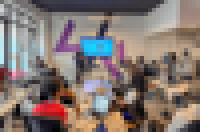
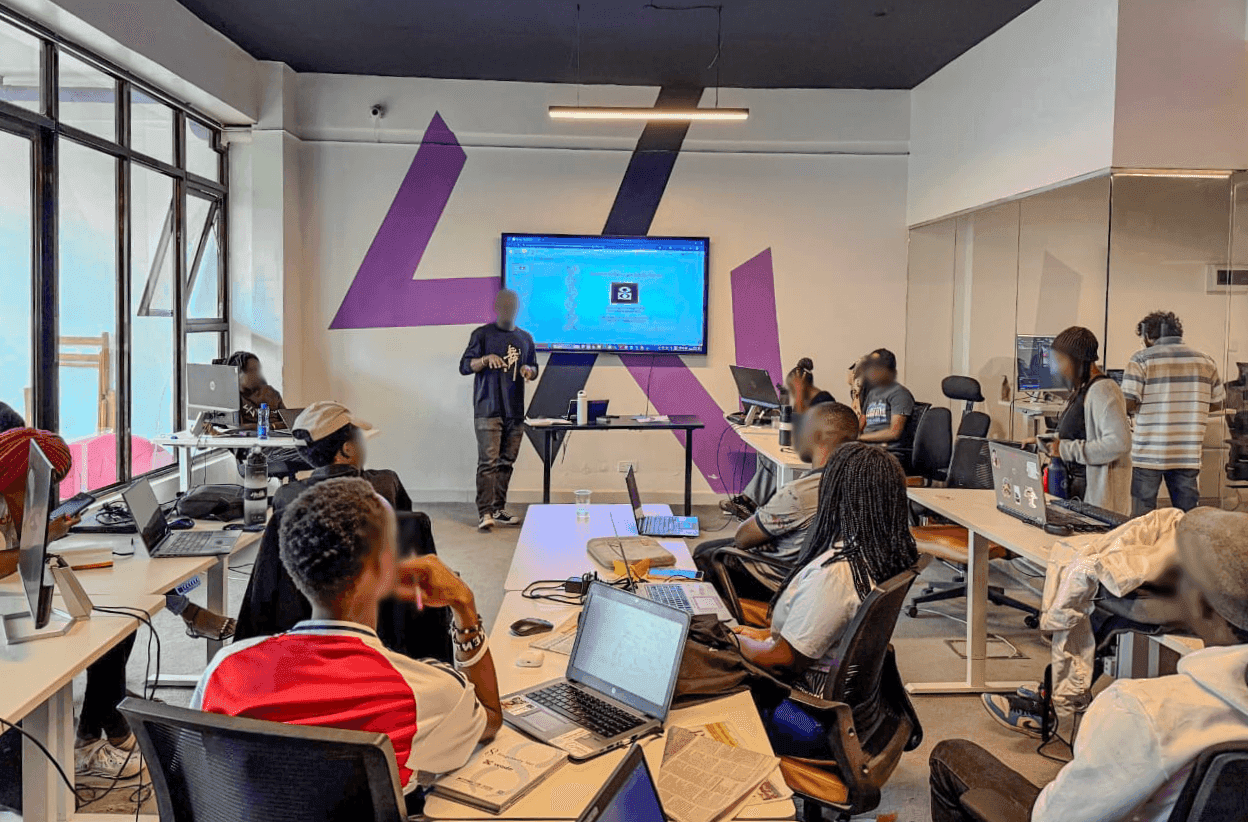
October Logos Circles:
- Porto: Currently operating as a closed group while collaborating with a local domestic-violence organisation to design a privacy-focused app for survivors. The first in-person Circle is planned for January, once the groundwork is ready to open up participation more widely. The organiser is actively looking for developer support. If you can help, please reach out via the Logos Forum.
- Prague (3 Oct): Brought together 25 attendees, including Logos contributors, privacy advocates, developers, and FOSS enthusiasts, for discussions on the Logos movement, decentralisation of Circles, and community organisation. Achieved its key objective of finding a local Circle steward. Learn more.
- Brno (8 Oct): Discussions on topics from Logos philosophy and privacy-focused phone operating systems to Worldcoin and Nomos’ private proof of stake. Welcomed two new participants from local universities, bringing the total to 11 attendees (including Logos cofounder Jarrad Hope).
- Barcelona (8 Oct): Gathered 10 participants from five countries (mostly technical professionals active in web3 and privacy niches) for discussions primarily in Spanish. The group explored privacy tool usability, web3’s public image, financial sovereignty, and digital identity, honing in on private communication UX as a key winnable issue. Learn more.
- London (8 Oct): 18 attendees from fields spanning tech, privacy, journalism, and digital rights discussed decentralised IDs, government data overreach, and private-by-design tech. The group aims to create an independent platform to educate UK citizens about digital IDs and data ownership and spread awareness about the risks presented by the government’s incoming digital ID scheme.
- San José, Costa Rica (8 Oct): Introduced Logos to web3 builders from local communities who resonated with its philosophy, vision, and parallel governance approach. Identified three key local winnable issues: political party sovereignty, campaign finance transparency, and public procurement auditing, inspiring follow-up collaboration. Learn more.
- Lisbon (8 Oct): Welcomed three new members, including an events specialist who will support the production of Parallel Society in March. Work on the short film documenting life and struggles in Quinta do Mocho continued, with the first shooting day set for 2 Nov.
- Rome (16 Oct): Gathered around 30 participants in a lively, informal setting and attended mainly by local developers and those at Urbe Village. The group explored the Logos vision, the concept of Circles, and began identifying potential winnable issues.
- Doha (16 Oct): The first Circle in Doha brought 35 participants to Qatar Science and Technology Park to explore decentralisation, privacy, and digital trust. The session introduced the Logos vision, sparked ideas for local applications like transparent sustainability funding and secure digital identity, and laid the foundation for a thriving community in Qatar.
- Berlin (17 Oct): Gathered eight attendees, including activists, researchers, and builders, to discuss local winnable issues. While no single project was chosen, the group generated strong ideas around food waste reduction, safety apps, community sharing platforms, and harm-reduction initiatives, setting the stage for deeper collaboration in future sessions. Learn more.
- Nairobi (21 Oct): Drew a strong turnout at Web3 Clubs HQ, the largest web3 developer training hub in East Africa. The session sparked interest from Kilifi, a coastal county with a vibrant grassroots community focused on environmental and social initiatives, where participants will explore winnable issues to tackle together.
- Bishkek, Kyrgyzstan (26 Oct): Circle ran alongside ETH Bishkek, where Logos bounties were available for winning hackathon projects. Sixteen developers joined the Circle to discover the Logos movement, sparking fresh ideas on winnable issues and inspiring future Circle stewards.
- Ilorin, Nigeria (28 Oct): First Logos Circle in Ilorin brought together a small but passionate group to explore the Logos vision and how decentralisation can empower local communities. Attendees built meaningful connections, discussed youth development and feminism in Nigeria, and launched two sub-circles to turn these conversations into action using the Logos tech stack.
- Edge City, Patagonia (29 Oct): Focused on spreading awareness of Logos Circles and encouraging new stewards to step up and lead future Circles in San Martín de los Andes. Logos contributor Sterlin talked about Logos philosophy, Circles' focus on winnable issues, and activism to the folks already at Edge City.
- Los Angeles (30 Oct): Rich discussions focused on advancing the ZKNextDoor privacy-first neighbourhood engagement app, with progress on integrating ZK Passport and Waku messaging. New attendees also sparked exploration of farm-to-table community ecosystems, highlighting opportunities to apply decentralised coordination tools to regenerative agriculture. Learn more.
- Online (Tuesdays): Our online Circles continue to serve as an essential space for exchanging updates from local groups and fine-tuning the focus areas of each in-person Circle. These virtual gatherings regularly introduce new participants who share their experiences, discuss cypherpunk concepts, and examine local challenges through the perspectives of activism and community development. Join the conversation every Tuesday on X.
We kindly ask that all Circle stewards write up their meetup reports on the Logos Forum. This way, other Circles can understand if there is overlap between their own initiatives and ideas propagated in another Circle, which can be forked and adapted to the needs of different communities. If knowledge equals power, then knowledge sharing equals peer empowerment!
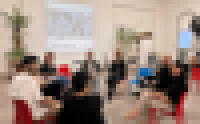
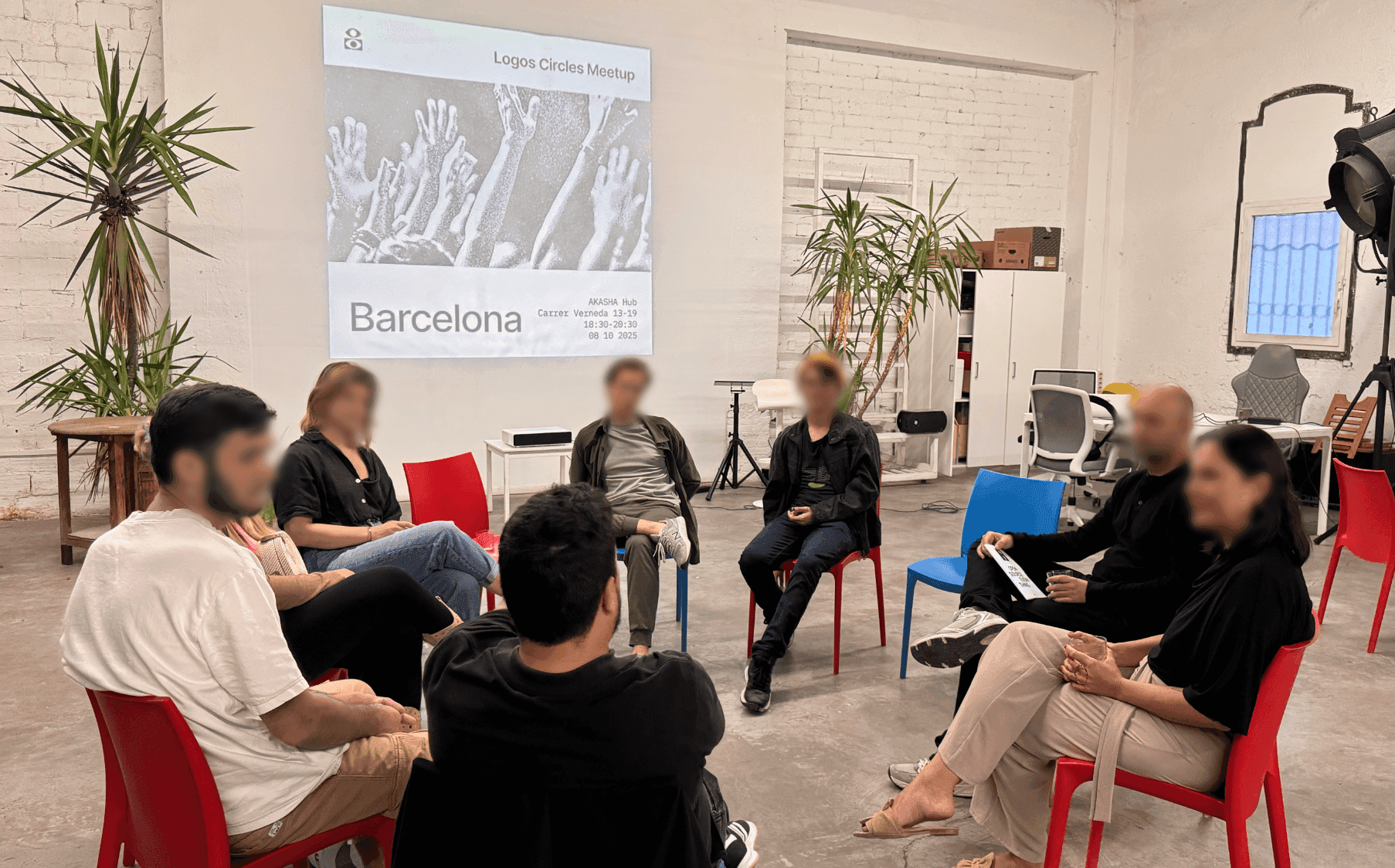
November Logos Circles (so far):
- Barcelona (6 Nov): Learn more and register.
- Mexico City (6 Nov): Learn more and register.
- San José, Costa Rica (7 Nov): Learn more and register.
- Funding the Commons, Buenos Aires (19 Nov): Learn more and register.
- P2P Privacy Hacker Lounge, Buenos Aires (22 Nov): Learn more and register.
- Berlin (28 Nov): Learn more and register.
We want to expand the Circles initiative worldwide and are seeking dedicated, value-aligned community members to help lead this effort. If you’re interested in starting a Circle, introduce yourself in the #intros channel on the Logos community, share the location where you’d like to form one, and tag @amelia__cares. As new Circles are established, they’ll be listed on Logos Events.
Parallel Society
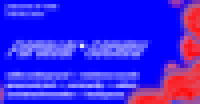
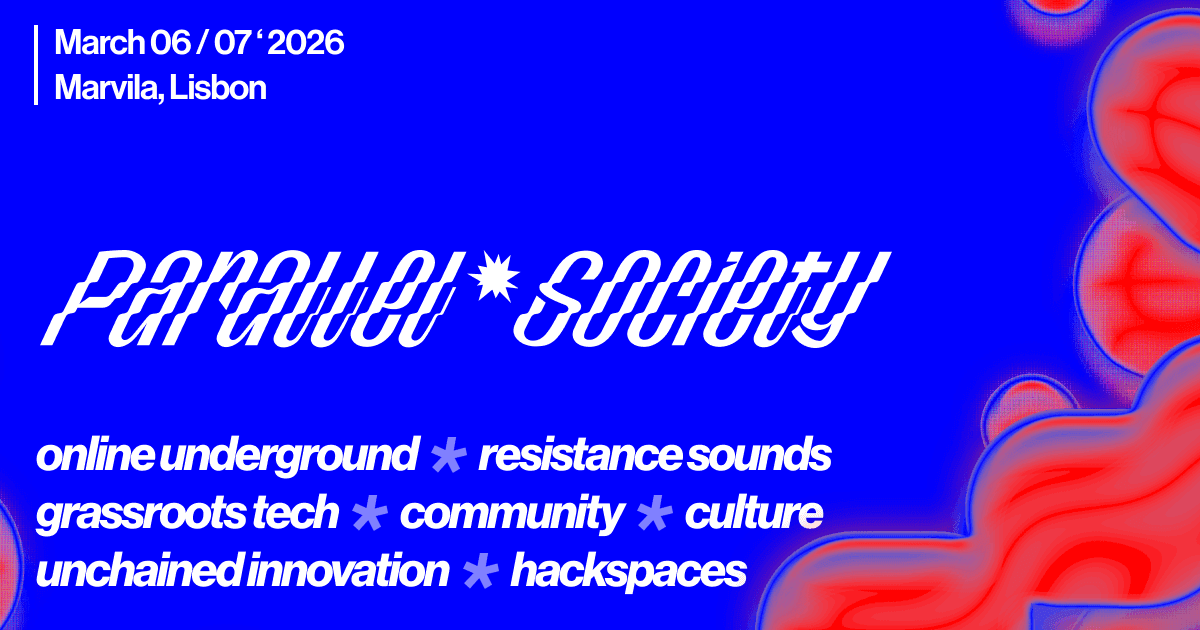
Planning continues for the main Parallel Society event, held in Lisbon, Portugal, on the 6 and 7 March 2026. The not-for-profit gathering unites tech pioneers, governance visionaries, and counter-cultural performers to collaborate in building a freer, more prosperous future for all.
Ten coalition members have already signed up to build Parallel Society, and we’re getting very close to revealing them, along with the lineup for day two’s cultural celebration and launching ticket sales.
Help us build an event like no other by joining the coalition here.
Road to Parallel Society
As part of our awareness-building Road to Parallel Society initiative, we’re sponsoring Rare Effect Lisbon, taking place on 7 and 8 November. We’ll be hosting a Logos Circle on 5 Nov and a documentary panel with the Quinta do Mocho community on 7 Nov. More information about the film night and Rare Effect.
We’ll also be hosting a three-hour visual takeover during sets by DJs from local studios Collective Unconscious and luca_untitl3d on 8 November. More information.

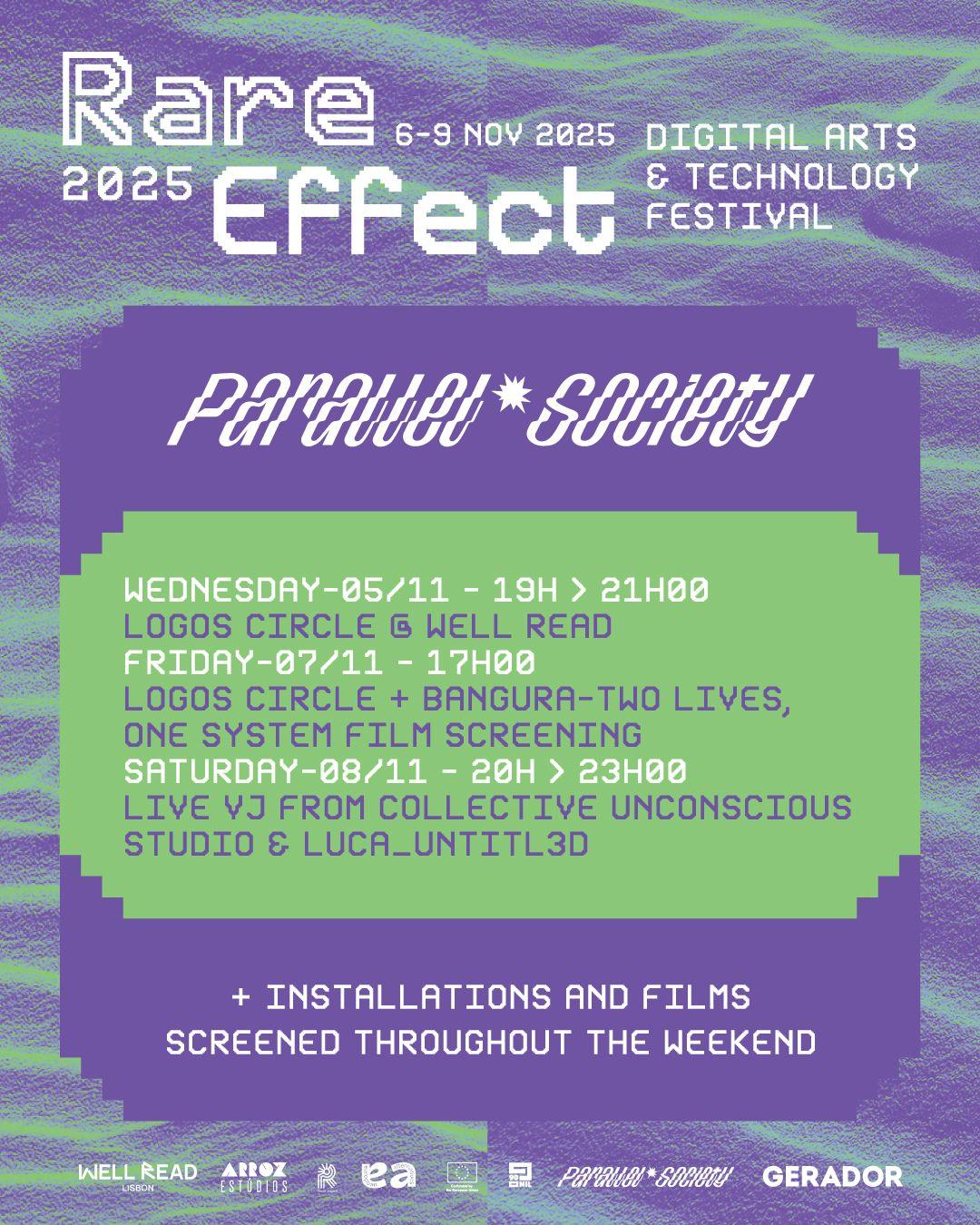
Community shoutouts
Each month, we spotlight Logos community members whose contributions carry the movement forward. Here’s our shoutouts from October:
- All the entrants to the Logos-sponsored RealFi Hack tracks (and congratulations to the winners).
- All the new Circles stewards for expanding the movement into new territories.
- Logos contributor Alisher for mentoring at the Funding the Commons Builder Residency in Buenos Aires and the RealFi Hack online.
- Everyone who joined the conversation during Logos Spaces.
- All those bringing their enthusiasm and passion to an in-person Logos Circles meetup.
- Everyone who bought, downloaded, or left a review for Farewell to Westphalia.
Would you like to be featured in next month’s community spotlight? Submit your work through the Logos Contribute portal and join the movement. If you’re working on a project and want input from others, start a discussion on the Logos Forum and share the link with the Logos community to connect with fellow creators and collaborators.
Technology development
Waku
- Explored the development of a Reliable Channel API to run on top of the Waku API and enable easily accessible reliability features for developers.
- Announced the P2P Hacker Lounge, an event blending learning, casual hacking, networking, and open discussions in Buenos Aires on Saturday, 22 November.
- Made steady progress on development, with a draft Noise protocol developed for encryption in Chat SDK and mixnet integration completed in LightPush.
- Hosted an internal hackathon to explore applications of the Waku protocols, with demonstrations of applications livestreamed on YouTube.
Waku’s October monthly update provides a more detailed account of the team’s recent progress. If you’re a developer, get involved and build Waku with us.
Codex
We’re continuing our deep refocusing of Codex, refining its core architecture to enhance the protocol’s usability, resilience, and real-world applicability. This ongoing effort aims to align Codex more tightly with other Logos protocols and the broader Logos vision, while laying the groundwork for a next-generation Codex testnet built on an improved core protocol.
If you’re a developer, get involved and build Codex with us.
Nomos
- Cryptarchia consensus development progressed on block reconstruction and conditional block validation.
- The Blend Network was updated to include support for epoch and session transitions, ensuring resilience through service recovery logic.
- Keynote presentation on Nomos at Dark Prague.
Nomos’ October monthly update provides a more detailed account of the team’s recent progress. If you’re a developer, get involved and build Nomos with us.
We see the rise of blockchain-based governance and network states as inevitable and need developers, designers, writers, and all forward-thinkers who care about new models of human cooperation to help us shape what comes next. Contribute to the movement today and be part of the next wave of governance innovation now.
Discussion
Dr. Corey Petty
Mariana Carmona
Dr. Corey Petty
Bathang
Logos
Logos
Logos
JosiahWarren
Community
Dr. Corey Petty
Sev Bonnet
Community